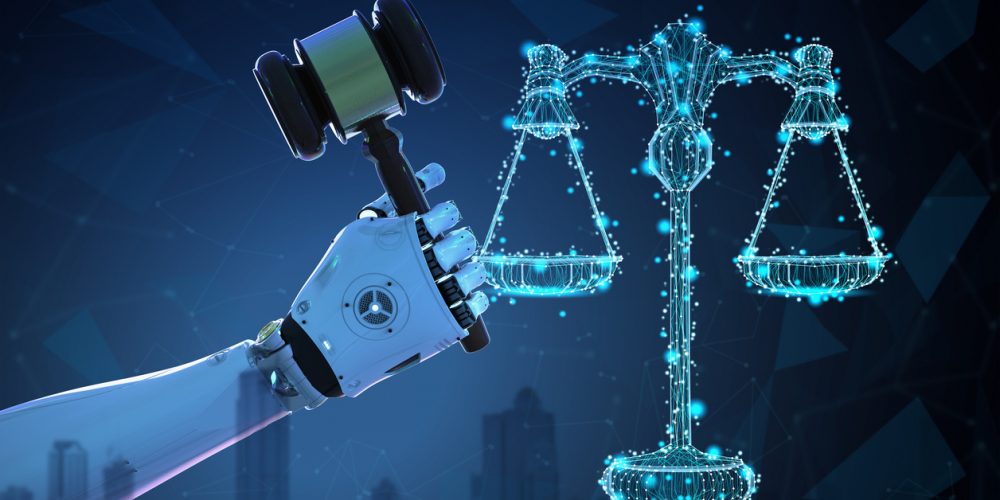
Legal Issues Raised In The Era Of Artificial Intelligence
We have entered the era of artificial intelligence. The development of big data and artificial intelligence has profoundly affected our social life, changed our production and lifestyle, and profoundly affected all aspects of society. At the same time, however, they also raised a number of legal issues that require legal theory researchers to respond.
The development of artificial intelligence involves the protection of personal rights:
Nowadays, many artificial intelligence systems put some people’s voices, expressions, and body movements into the internal system, so that the artificial intelligence products developed can imitate other people’s voices, physical movements, etc., and even can express like people and communicate with people. . However, if the above-mentioned imitation activities are carried out without the consent of others, it may constitute an infringement of the personal rights of others. In addition, artificial intelligence may also utilize the optical personality, sound control, face recognition technology, etc., to exploit the personality rights of others, which also poses new challenges to the protection of personal voices, portraits, and the like.
Example:
The development of optical technology has promoted the development of camera technology, improved the resolution of camera images, and made night shots have the same effect as daily pictures, and also made the acquisition and use of portrait rights easier. In addition, the robot companion has emerged. In the case of abuse or infringement of the robot companion, should the perpetrator bear the responsibility for infringement of personality and moral damage? But in this case, is it necessary to first consider the qualification of the artificial intelligence robot, or at least have some rights? This is indeed a question worth exploring.
The development of artificial intelligence also involves the protection of intellectual property rights:
From a practical point of view, robots have been able to create music and paintings themselves, and poetry collections for robot writing have also been published, which poses new challenges to the current intellectual property law. For example, Baidu has developed a robot that can create poetry. Microsoft’s artificial intelligence product “Microsoft Xiao Bing” published the artificial intelligence poetry “Sunshine Lost Glass Window” in May 2017. This raises the question of who is the copyright of the works created by these robots? Is it the inventor of the robot software? Still the owner of the robot? Or is it given the robot a certain degree of legal subject status and thus has its own rights? The development of artificial intelligence may also lead to intellectual property disputes. Intelligent robots must carry out “deep learning” and “deep thinking” through certain procedures.
In this process, it is possible to collect and store a large amount of information that others have enjoyed copyright, which may constitute illegal copying of other people’s works, thereby constituting others. Copyright infringement. If an artificial intelligence robot uses the acquired knowledge and information created by others to create a work (for example, the created song contains syllables and tunes of other people’s songs), it may constitute plagiarism. However, in the case of infringement of intellectual property rights, who should bear responsibility, which is itself a problem.
The development of artificial intelligence involves the protection of data assets:
Article 127 of the General Principles of Civil Law of China stipulates the rules for the protection of data. Data is a new type of property right in nature. However, the issue of data protection is not limited to the attribution and distribution of property rights. It also relates to the security of such property rights, especially It involves national security. The development of artificial intelligence also poses new challenges to the protection of data. On the one hand, artificial intelligence and its systems can operate normally, largely supported by massive amounts of data, and how to regulate data when using artificial intelligence. Collecting, storing, and utilizing behaviors, avoiding data leakage and misuse, and ensuring the security of national data are major practical issues that need to be addressed.
On the other hand, the application of artificial intelligence depends to a large extent on the algorithm behind it. How to effectively regulate the application of this algorithm and its results, avoid infringement of the rights of others, and also need to deal with the legal system. At present, the openness, transparency and fairness of the artificial intelligence algorithm itself is a core issue in the era of artificial intelligence, but it has not received sufficient attention.
Conclusion:
The era of artificial intelligence has arrived. It not only changes the human world, but also profoundly changes the human legal system. Our legal theory research should pay close attention to social reality and actively respond to a series of legal challenges brought about by emerging science and technology such as big data and artificial intelligence, thus providing strong theoretical support for the further improvement of our legislation



